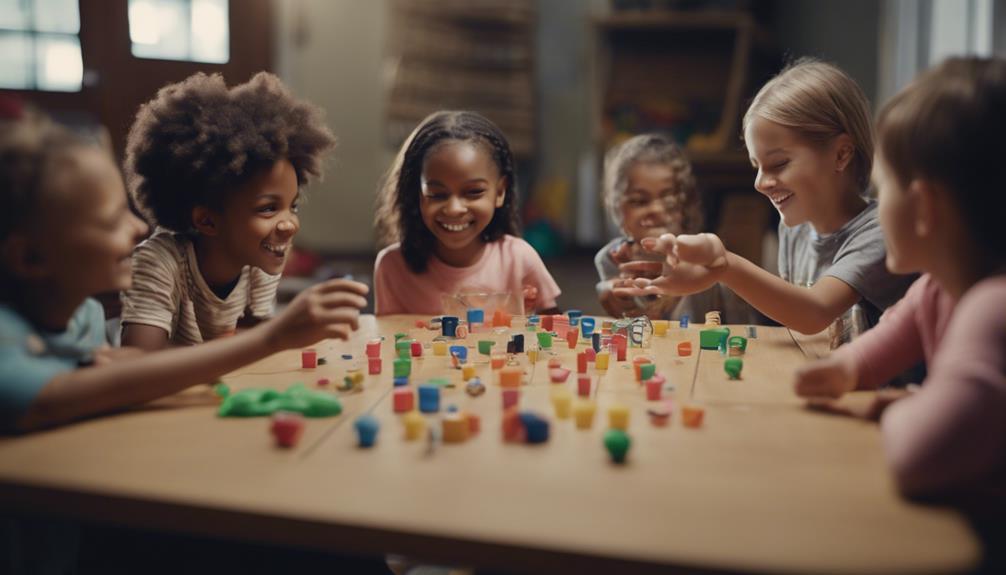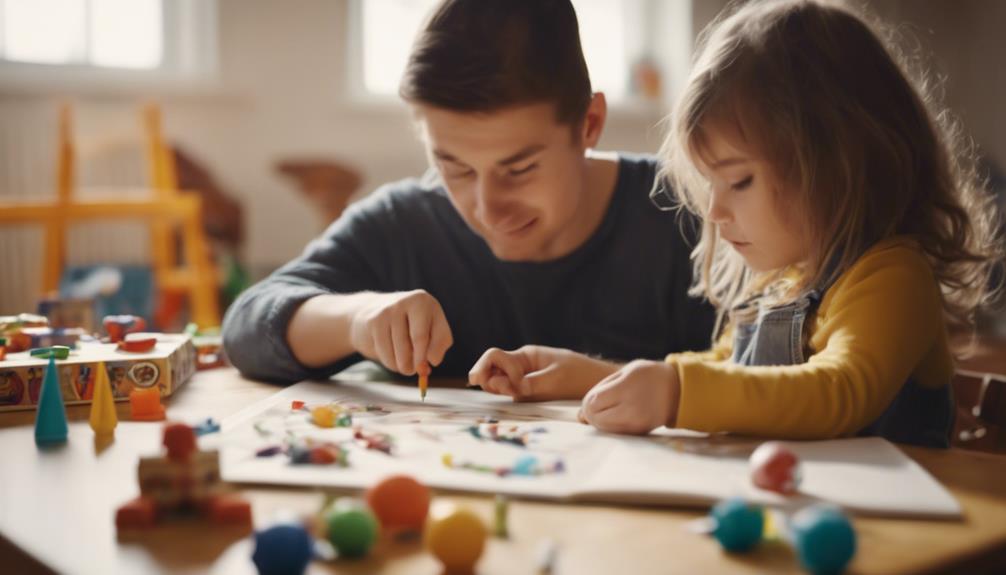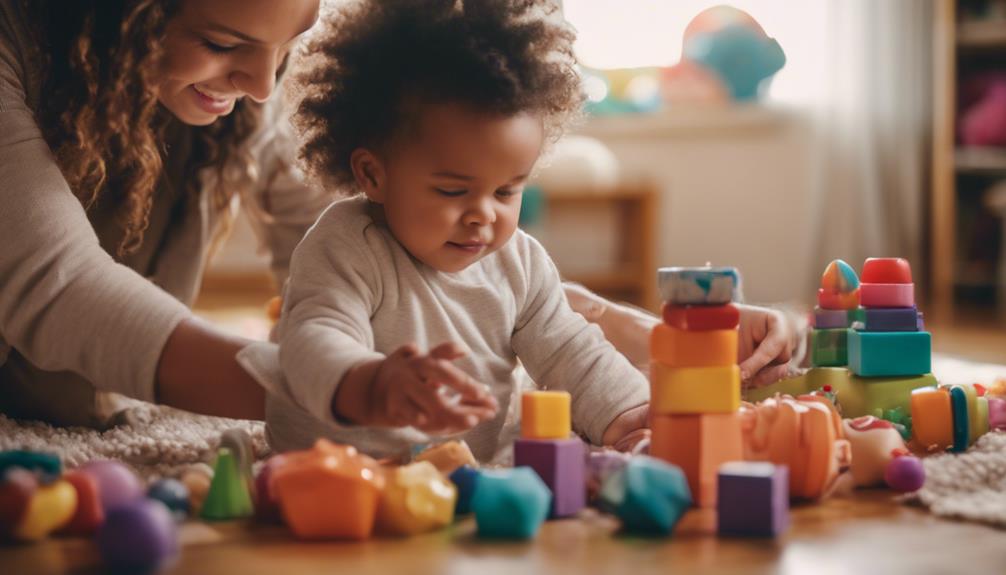Participating in games that involve taking turns, emotion charades, role-playing exercises, problem-solving activities, and teamwork-building games can effectively improve children’s social skills. These activities promote cooperation, improve communication, teach empathy, enhance decision-making, sharpen problem-solving skills, and encourage teamwork. Engaging in these interactive tasks helps children develop important social skills and also boosts their cognitive and emotional intelligence. Each activity serves a specific purpose in fostering social awareness, collaboration, confidence, and unity among children. Using a variety of engaging activities offers a well-rounded approach to developing social skills in kids, laying a solid foundation for future interactions and relationships.
Key Takeaways
- Turn-Taking Games enhance cooperation and communication skills.
- Emotion Charades develop emotional intelligence and empathy.
- Role-Playing Exercises improve social skills and problem-solving abilities.
- Problem-Solving Activities strengthen critical thinking and decision-making skills.
- Teamwork-Building Games foster collaboration, trust, and effective teamwork.
Turn-Taking Games
Engage your kids in turn-taking games to promote cooperation and teach important social skills. These social skills activities aren't just significant but also essential for building positive relationships among children.
By playing turn-taking games, kids learn the value of cooperation, communication skills, patience, and social awareness. Understanding the concept of sharing and taking turns becomes easier through these activities, fostering a sense of fairness in children.
When children participate in turn-taking games, they develop essential skills that will benefit them throughout their lives. Waiting their turn teaches them patience, while respecting others' chances enhances their social awareness. Communication skills are honed as they interact with their peers during these games, promoting healthy relationships and teamwork.
The ability to take turns and share reinforces the importance of cooperation, laying a strong foundation for positive social interactions. Encouraging your kids to engage in these activities won't only provide entertainment but also equip them with critical social skills for the future.
Emotion Charades

Introduce your kids to a fun and interactive activity known as Emotion Charades, where they can learn to express and recognize various emotions through acting or drawing. This activity is designed for elementary students to explore emotions, enhance communication skills, and foster social interactions.
By engaging in Emotion Charades, children can tap into their creativity and develop emotional intelligence. Through this activity, kids have the opportunity to practice empathy, perspective-taking, and emotional recognition in a playful setting.
Emotion Charades serve as a valuable tool for helping children understand and express emotions in a creative manner. As children act out or draw different emotions, they not only improve their own emotional expression but also learn to interpret the feelings of others. This fosters a deeper understanding of emotions and enhances their ability to connect with others on an emotional level, making Emotion Charades a beneficial activity for social skills development.
Role-Playing Exercises
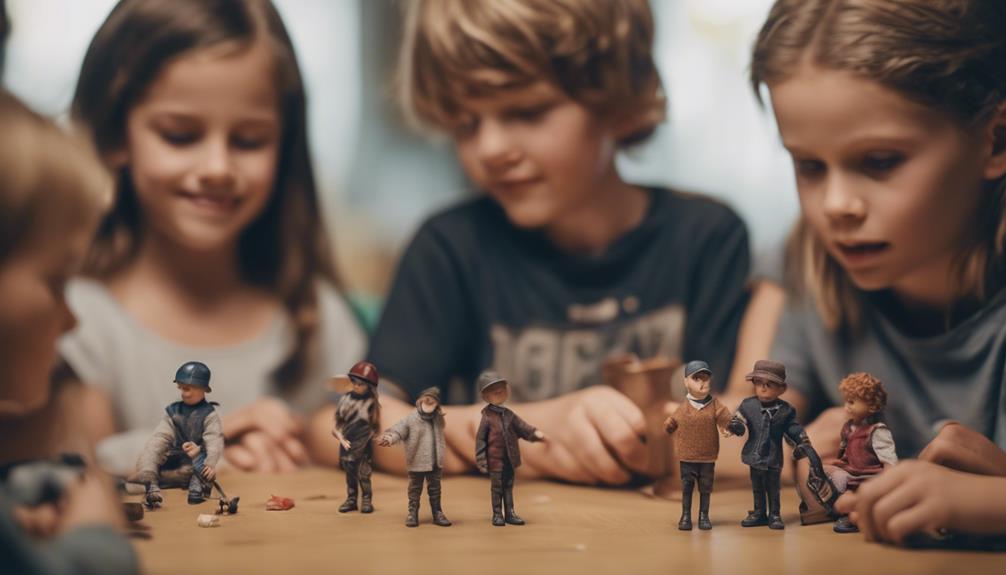
Role-playing exercises provide children with a valuable opportunity to practice and enhance their social skills in a controlled environment. Through role-playing activities, kids can engage in various social interactions, which help them develop empathy by seeing situations from different perspectives.
These exercises also focus on improving communication skills by allowing children to practice using verbal and non-verbal cues effectively. Additionally, role-playing scenarios enable kids to work on their problem-solving abilities as they navigate through different social situations.
As children engage in these role-playing exercises, they gradually build confidence in handling real-life social interactions with more ease. By immersing themselves in diverse social scenarios, kids can practice responding to various cues, understand different perspectives, and enhance their overall social skills in a safe and supportive setting.
Problem-Solving Activities

Problem-solving activities are instrumental in honing children's critical thinking skills and decision-making abilities. Engaging in these activities allows kids to brainstorm solutions, work on group problem-solving tasks, and cultivate collaboration and creativity. Through puzzles, riddles, and challenges, children learn to approach problems with resilience, adaptability, and a growth mindset. These activities not only enhance cognitive skills but also foster independence in identifying and resolving challenges. By encouraging kids to explore different perspectives and think outside the box, problem-solving tasks promote a holistic approach to learning. Collaboration in group activities teaches children how to communicate effectively, listen to others' ideas, and work towards a common goal. Such experiences instill valuable life skills that go beyond academics, preparing children to tackle real-world problems with confidence and ingenuity.
| Problem-Solving Activities | Benefits |
|---|---|
| Critical Thinking Skills | Enhanced |
| Decision-Making Abilities | Strengthened |
| Creativity | Fosters innovation |
Teamwork-Building Games
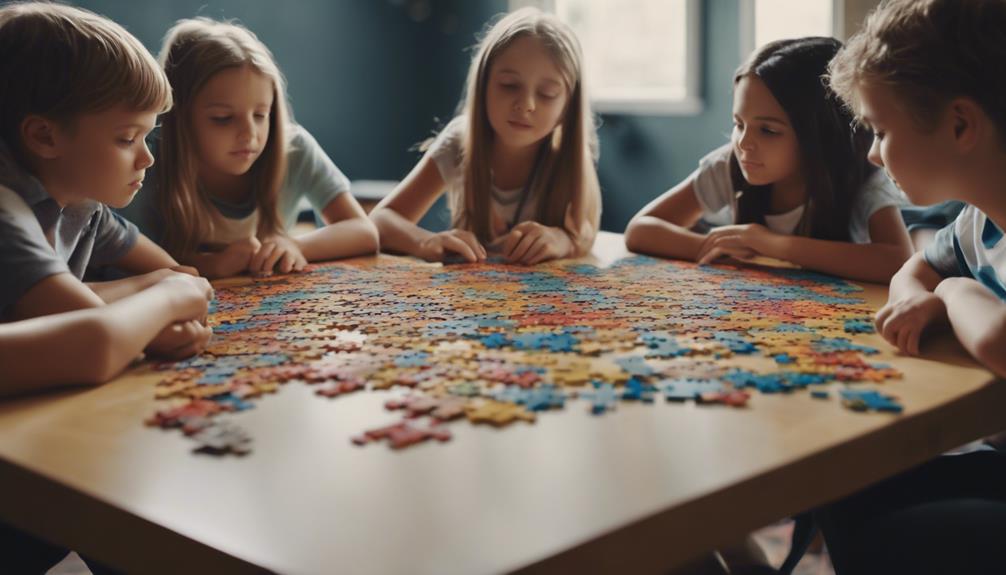
Engage children in teamwork-building games to foster collaboration, communication, and mutual support among participants. These activities not only bring fun but also help in developing vital skills such as problem-solving, decision-making, and conflict resolution in a group setting.
Through building challenges, group puzzles, and cooperative tasks, children learn to work together towards a common objective, enhancing their teamwork abilities. Teamwork-building games create a sense of unity, trust, and shared responsibility among kids, building a strong foundation for effective teamwork.
Frequently Asked Questions
What Activities Help Children Develop Social Skills?
To develop social skills, engage in turn-taking games, music-making, and dramatic play. These activities foster positive relationships, cooperation, empathy, and self-regulation. Participate in preschool games like Simon Says, Checker Stack, and Passing the Ball for enhanced communication and teamwork.
How to Develop Social Skills in Kids?
You can develop social skills in kids by engaging them in various activities like role-playing, group games, and storytelling to enhance communication and interpersonal interactions. Encouraging empathy, active listening, and problem-solving can foster positive relationships.
What Is a Social Development Activity?
A social development activity is a task or exercise that helps individuals improve their social skills and interactions. It provides a structured way to enhance communication, empathy, teamwork, problem-solving, and accountability in children.
What Are Pro Social Activities for Children?
Engage in activities like sharing, helping, cooperating, and showing empathy to benefit others and enhance social interactions. These actions improve social skills, emotional intelligence, and relationships with peers, leading to better mental health and academic performance.
Conclusion
To sum up, these social skills development activities for kids offer a fun and engaging way to improve their ability to interact with others.
So, go ahead and try them out with your little ones to see the positive impact they can have on their social skills.
Who knew that having fun could also be a learning experience?

